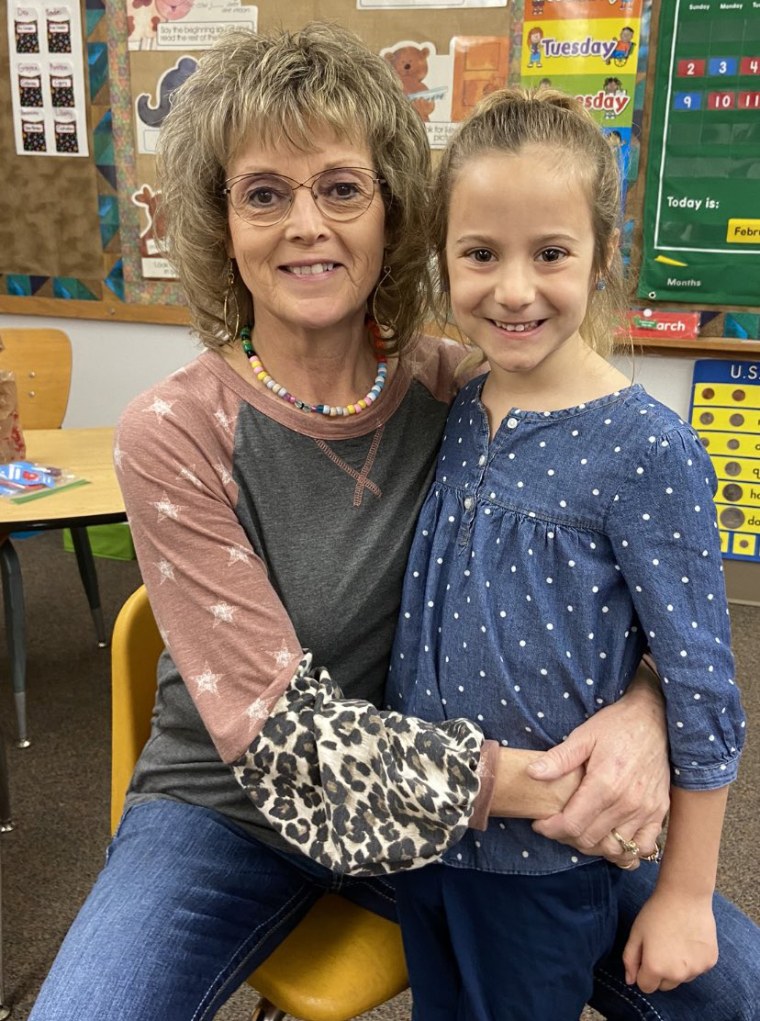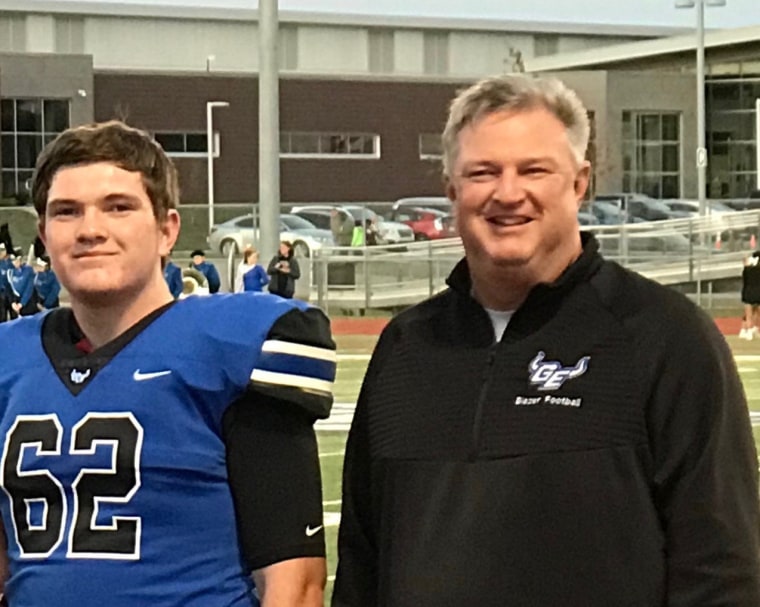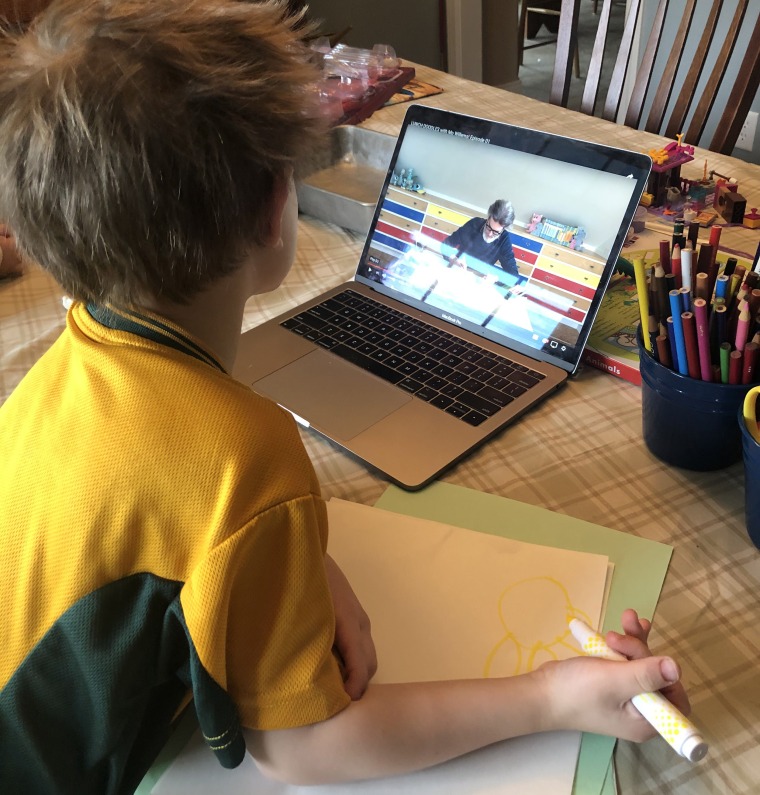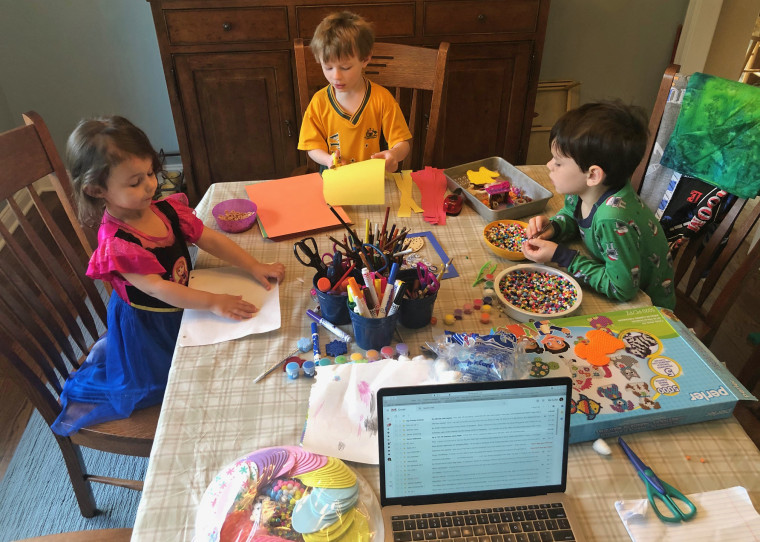Skyler Buie, 17, wasn't all that interested in going to the prom at his high school in Gardner, Kansas. But graduation?
"It's a special thing that only really happens once," the senior at Gardner Edgerton High School said, "and now we don't get to experience it."
Sarah McGinnity, a mom in Overland Park, Kansas, won't get to see her son dress up like Babe Ruth for his third-grade wax museum project, in which parents watch students deliver speeches dressed as historical figures. She won't see her younger son don a little cap and gown for the kindergarten graduation.
"I get emotional thinking about what they'll miss out on," McGinnity said.

And first grade teacher Kim Taylor won't get to take her class at Victoria Elementary School in Victoria, Kansas, on their annual field trip to the zoo that's part of her year-end ocean unit. She won't get to hug them goodbye on the last day of school.
"I just broke down crying," she said. "I think about my little first graders and just the impact that this is going to have on them."
When Gov. Laura Kelly this week made Kansas the first state to order all public and private schools closed through the end of the school year to prevent the spread of the coronavirus, she created a host of challenges.
Her move — which many suspect will soon be followed by other governors across the country — has thrown into turmoil everything from college admissions to kindergarten readiness.
It's triggered deep sadness among students, parents and teachers, who will miss important rituals and celebrations, as well as serious concerns for the children whose lives and learning have been disrupted.
Full coverage of the coronavirus outbreak
"Kids can be very resilient, but some kids internalize stuff," Taylor said Wednesday. "I had one parent last night message me and say her child threw himself down on the floor and had this major tantrum. I said 'That's OK. They're scared. Their lives have been turned upside down.'"
An unprecedented disruption
Mandatory school closures have already come to 39 states and affected at least 42.1 million students, according to Education Week.
But most of those closures so far have been limited to a couple of weeks, maybe an extended spring break.
The prospect that the ongoing threat from the virus could force schools to close through the end of the school year — something a number of governors have said is increasingly likely — represents an unprecedented upheaval that will require an unprecedented response, said Michael Casserly, executive director of the Council of the Great City Schools, a coalition of superintendents and school board members from the nation's largest urban public school systems.
"We've had disasters before," he said. "We've had earthquakes and hurricanes and floods and 9/11. But those were individual cities and communities and other folks could contribute personnel and goods and resources."
The coronavirus threatens to close nearly every school in the country, meaning every state and every district could have to rethink what education looks like.
"Governors and the higher education community are going to need to be prepared to waive all kinds of restrictions that we're otherwise legally bound to," Casserly said.
High schools and states could rewrite diploma requirements to allow students to graduate with fewer credits. Colleges might need to adjust admissions standards to welcome students who were not able to complete required courses or exams. Principals will have to alter how they do everything from hiring teachers to enrolling students for next year. And teachers at every grade level will need to quickly find a way to convey the rest of the material they had planned for the school year, and decide how to determine whether students have learned enough to pass to the next grade.

"Maybe it's a series of activities we ask them to complete, or a paper we ask them to write, or maybe a journal of your experience of what you're doing at home," said G.A. Buie, executive director of the United School Administrators of Kansas and the Kansas School Superintendents' Association, a membership organization of school leaders. "It will be different for every community and maybe for every student."
Before Kelly made her announcement Tuesday night, educators in Kansas had been worried that school closures would be extended one week at a time, leaving teachers and students on edge, Buie said.
The closure decision gives Kansas educators some clarity, he said. "It was, 'Let's make a decision and start planning and let's get back to educating kids in some form or fashion.'"
Now, he's hopeful that the right conversations are happening and that the process could ultimately lead to better schools in Kansas.
"We have to create a new normal in Kansas," said Buie, whose son, Skyler, will miss his high school graduation. "We're forced to move forward in new and innovative and creative ways."
Download the NBC News app for full coverage of the coronavirus outbreak
As other states consider following Kansas' lead, some education leaders are urging caution.
"I'm not sure that, psychologically or otherwise, it's a wise move for anybody to cancel the rest of the school year right now," said Randi Weingarten, president of the American Federation of Teachers. "I think we need to give people time to plan and time to adjust before rushing to those longer-term decisions."
If states do decide to end the school year early, her union is among education groups that have called on the U.S. Department of Education to cancel the annual state standardized tests in math, English and science that some districts and states use to evaluate teachers, make student promotion decisions and decide whether to shut down low-performing schools.
U.S. Education Secretary Betsy DeVos responded Friday, granting states broad flexibility to cancel testing this year.
Canceling tests could allow teachers to come up with ways to measure how students are learning at home, Weingarten said. "Letting us rely on teacher and principal ingenuity, school by school, would actually be a pretty good thing right now."
'Unfinished learning'
As temporary school closures have spread, the big-city leaders in the Council of the Great City Schools have gathered for regular conference calls to share ideas, Casserly said.
At first, school leaders focused on setting up ways to distribute school lunches to students from low-income families who depend on those meals, and on developing ways to get instructional materials to students in their homes.
Now, as the possibility of longer school closings becomes more likely, they're thinking about ways to minimize the impact on children, especially those who were already behind their peers, children with special needs who need extra support, and children whose parents were already struggling.
The challenge is made more difficult by the fact that not every child has a computer or internet access at home. Many students don't have a parent or caregiver with the time or resources to help them keep up with online schoolwork. And many teachers don't have the training to effectively teach children who aren't in the classroom.

"The truth of the matter is there's going to be unfinished learning here," Casserly said. "Even with all the effort that we make to provide lessons and home instruction or online instruction, there's no substitute for being in school. There's no substitute for being in front of a teacher and being with your peers."
Casserly hopes that if states decide to keep schools closed until the fall, they'll have a plan to help kids catch up next year, whether that means extending the school year, extending the school day or flooding classrooms with extra tutors and instructors.
Taylor, the first-grade teacher in Victoria, said she hopes schools also find a way to celebrate year-end milestones, even if that means holding the big end-of-the-school-year barbecue in August or September.
"You need that closure," Taylor said, particularly for students who are moving from one school to another or graduating.
"You get so close to these kids and it's so rewarding to see how they flourish over the year, how their little personalities develop and how compassionate they are toward one another," she said.
"This is so tough," she added. "There have been a lot of tears."
